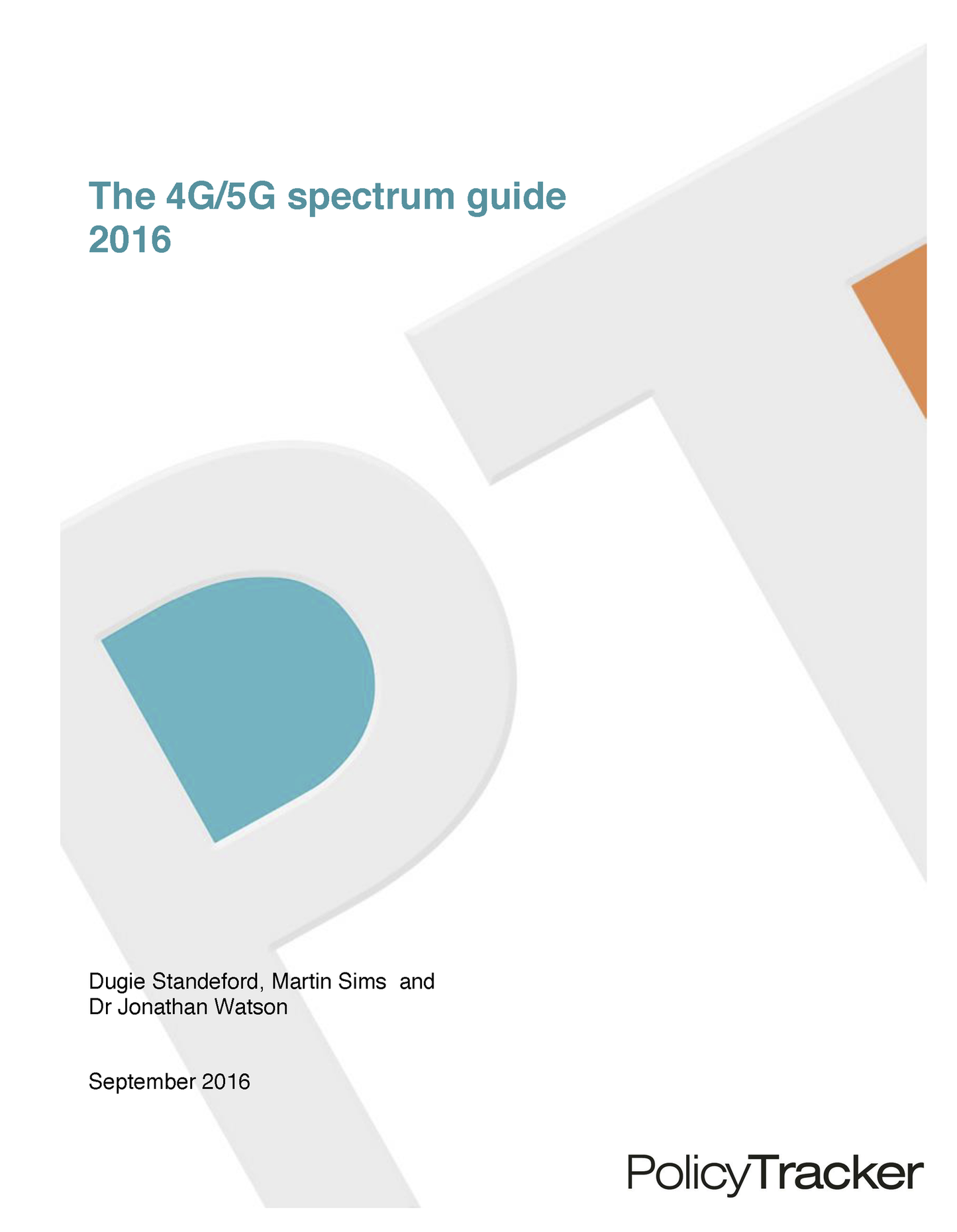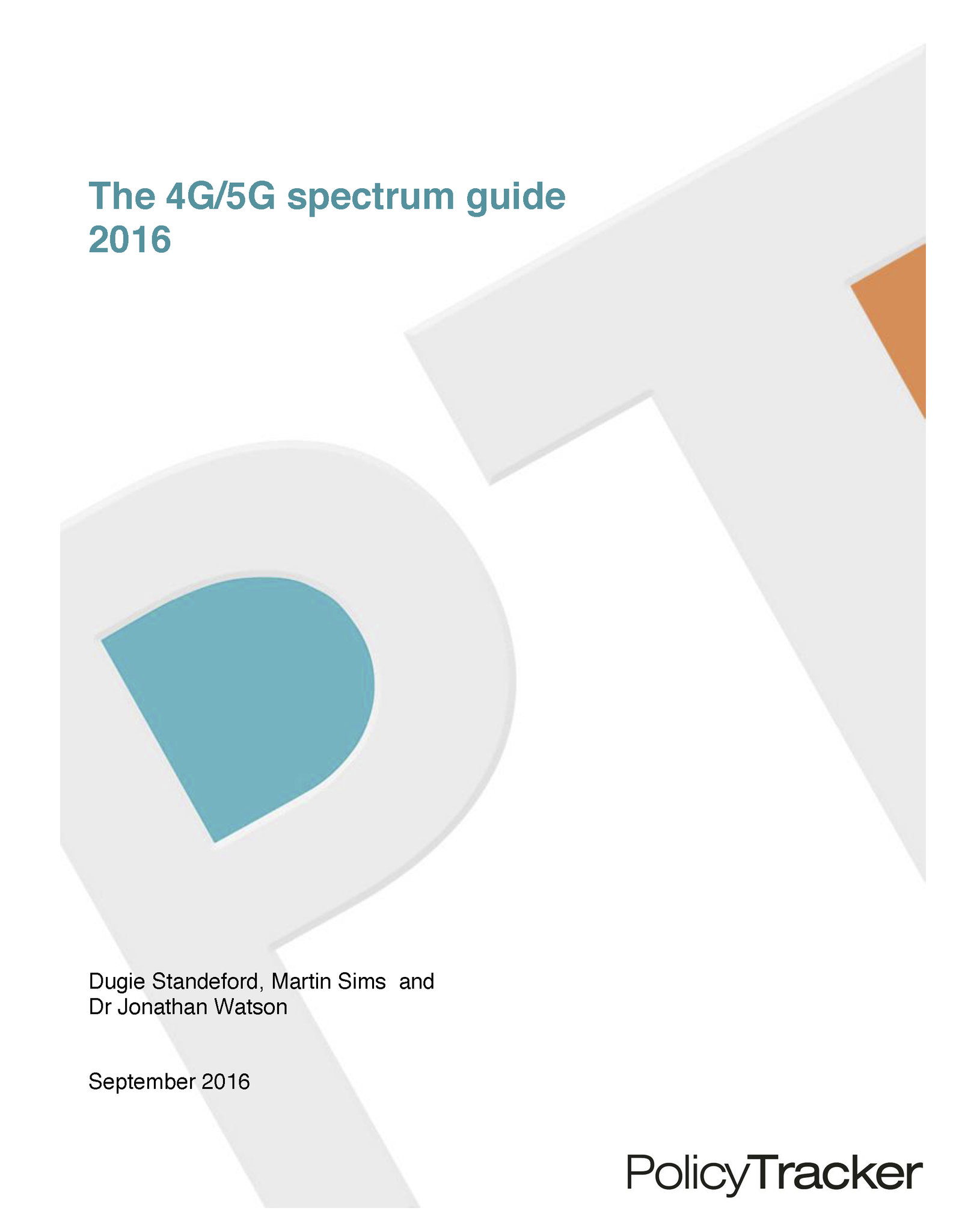PolicyTracker
The 4G and 5G Spectrum Guide
The 4G and 5G Spectrum Guide
Couldn't load pickup availability
An indispensable reference for spectrum professionals, this report is the leading authority on current mobile frequencies and bands which could be used for 5G.
The 4G and 5G Spectrum Guide is the essential briefing for everyone involved in national or regional spectrum policy. 140 pages long and containing over 130 graphs, charts and diagrams it is the most comprehensive resource of its kind.
It contains detailed textual analysis of the current and future mobile bands and the approaches of leading countries and industry players, based on interviews with leading industry sources and leveraging PolicyTracker’s unparalleled experience of spectrum policy.
This analysis is backed up by statistics from over 120 countries and 2400 spectrum licences. The data has been collected over the past decade for the Global Spectrum Database and gives the guide an unprecedented accuracy.
Key benefits
Written by the PolicyTracker team, the 4G/5G Spectrum Guide gives you:
- A detailed briefing on all the crucial 4G and 5G bands
- Concise overview of priorities for leading vendors, operators and OTT players
- Summary of spectrum policy in the 11 largest economies
- The background needed for international negotiations at the ITU and elsewhere
- An overview of recent developments in key debates
- Instant access to authoritative statistics
- Detailed sourcing for all graphs and charts
Report content
For 4G bands 4G/5G Spectrum Guide shows at a glance:
- Current and future prospects for 12 bands from 450 MHz to 3.5 GHz
- The regions in which the bands are used
- A comparison of the bandwidth available in different countries
- Upcoming licence expiries
- Proportion of 2G, 3G and 4G usage
- MHz/pop prices for licences
- The likelihood of refarming
- The differing priorities of vendors operators and the new OTT players
Regarding 5G bands, this report makes a reasoned and evidence-based analysis of the likely long-term availability of spectrum and the needs of the technology, answering these questions and more:
- Which bands are being studied for 5G?
- Which bands are proving the most popular?
- Where are the most trials taking place?
- Which bands are being supported by vendors and operators?
- What are the perspectives of the OTT players?
- What are the economic drivers for the major stakeholders?
- What are the policies of national governments?
Which bands are covered?
| 4G bands | Possible 5G ranges |
|---|---|
| 2 GHz | 3-6 GHz |
| 1800 MHz | 6-10 GHz |
| 900 MHz | 10-20 GHz |
| 850 MHz | 20 - 30 GHz |
| 800 MHz | 30 - 40 GHz |
| 700 MHz | 40-50 GHz |
| 600 MHz | 50 - 60 GHz |
| 450 MHz | 60-70 GHz |
| 2.6 GHz | 70-80 GHz |
| L-band | 80 - 90 GHz |
| 2.3 GHz | |
| 3.5 GHz |
In-depth analysis
| Vendors | Operators | Countries |
|---|---|---|
| Ericsson | Deutsche Telekom | China |
| Qualcomm | Telefónica Group | India |
| Samsung Electronics | Vodafone Group | United States |
| Nokia | SoftBank Group | Brazil |
| Cisco | China Mobile | Japan |
| Fujitsu | Orange Group | Germany |
| AT&T | France | |
| OTT players | Verizon Wireless | United Kingdom |
| Italy | ||
| Canada | ||
| Microsoft |
Who should buy this report?
- Regulators
- Government departments
- Mobile operators
- Manufacturers
- Satellite operators
- Companies which develop chipsets
- Broadcasters
Pricing
The report is priced at US$2,500.00 for up to five users within a single organisation.
This is the ideal document to get a whole team up to speed: please enquire for corporate licensing options. The report is supplied as a PDF and can be viewed on all platforms.

